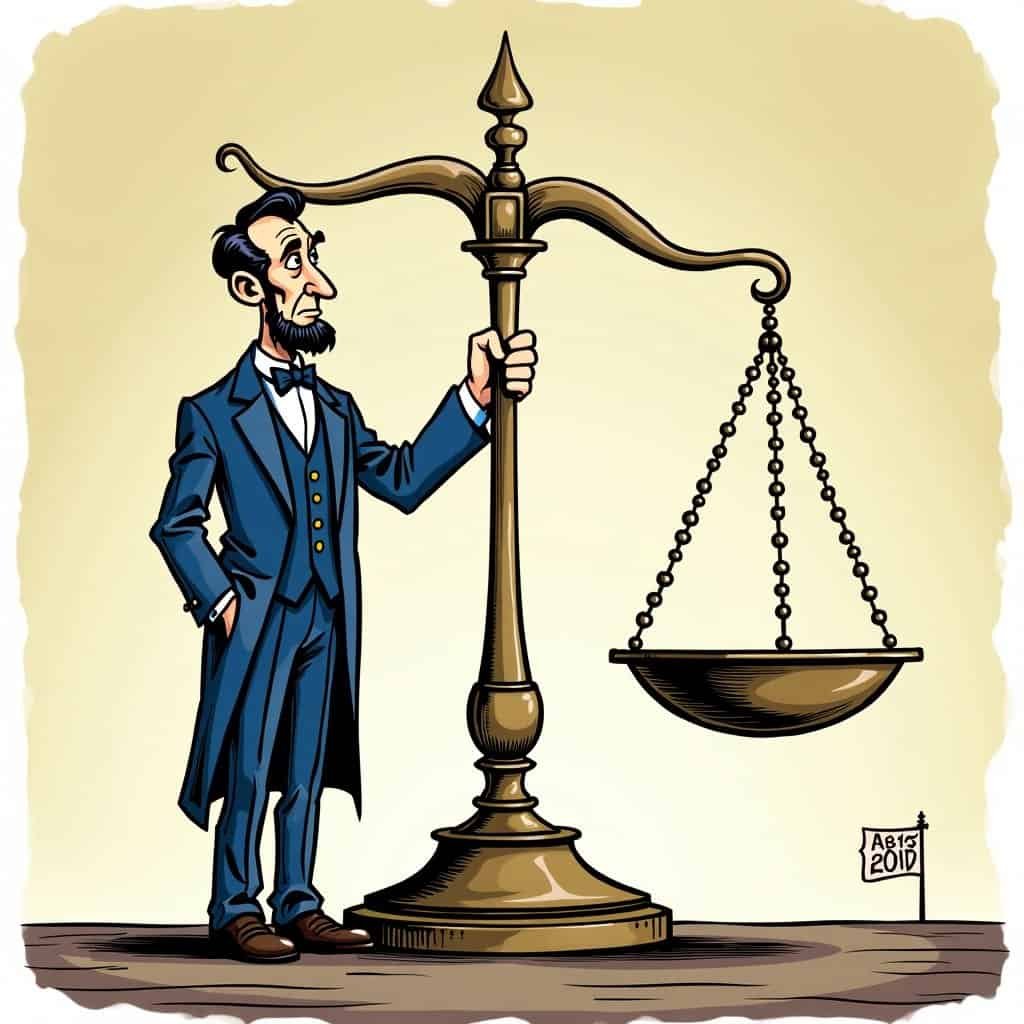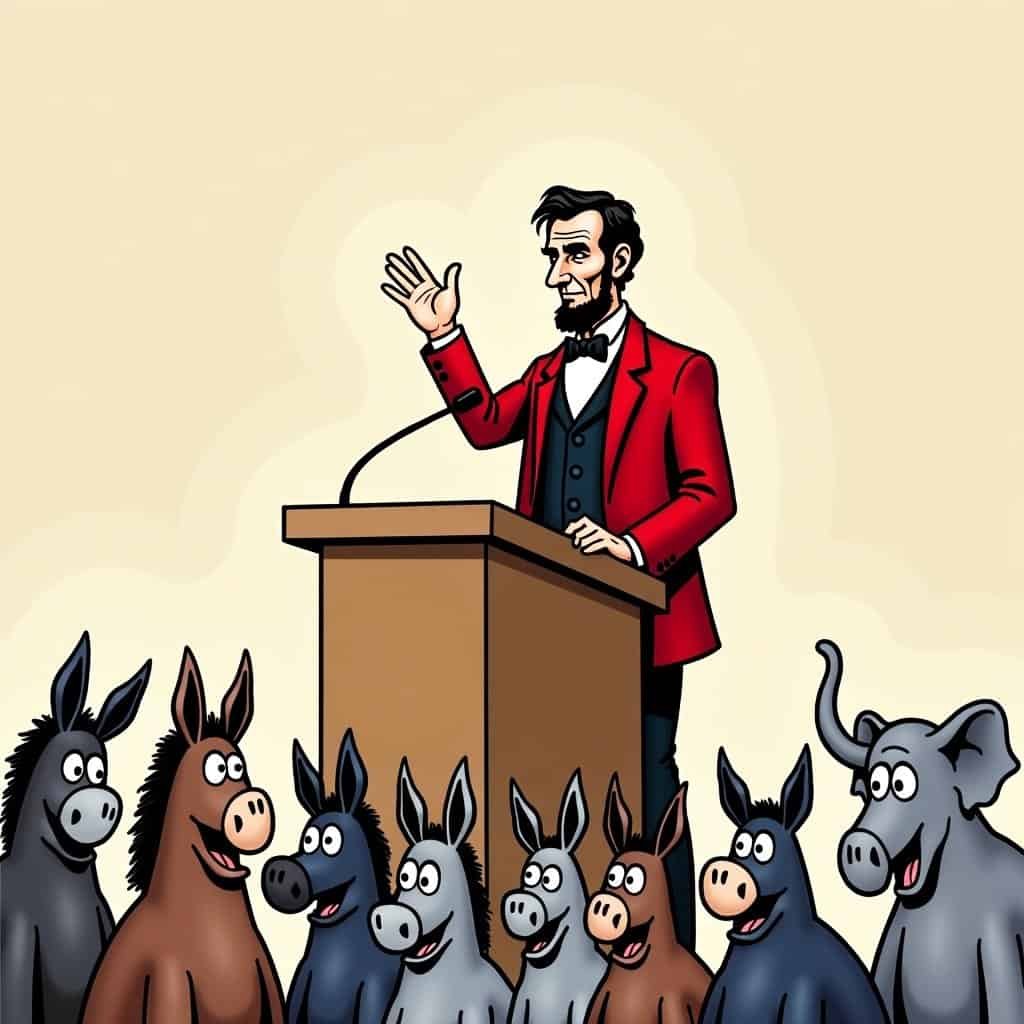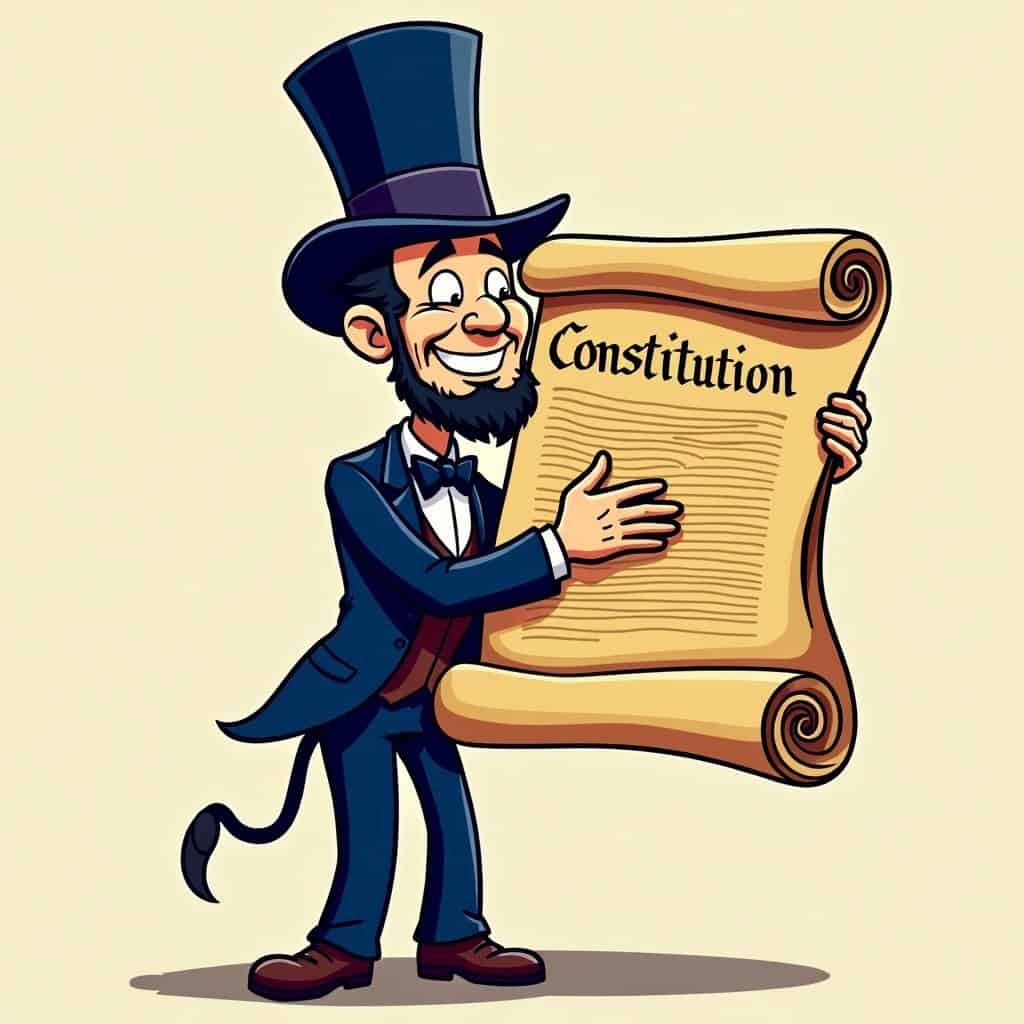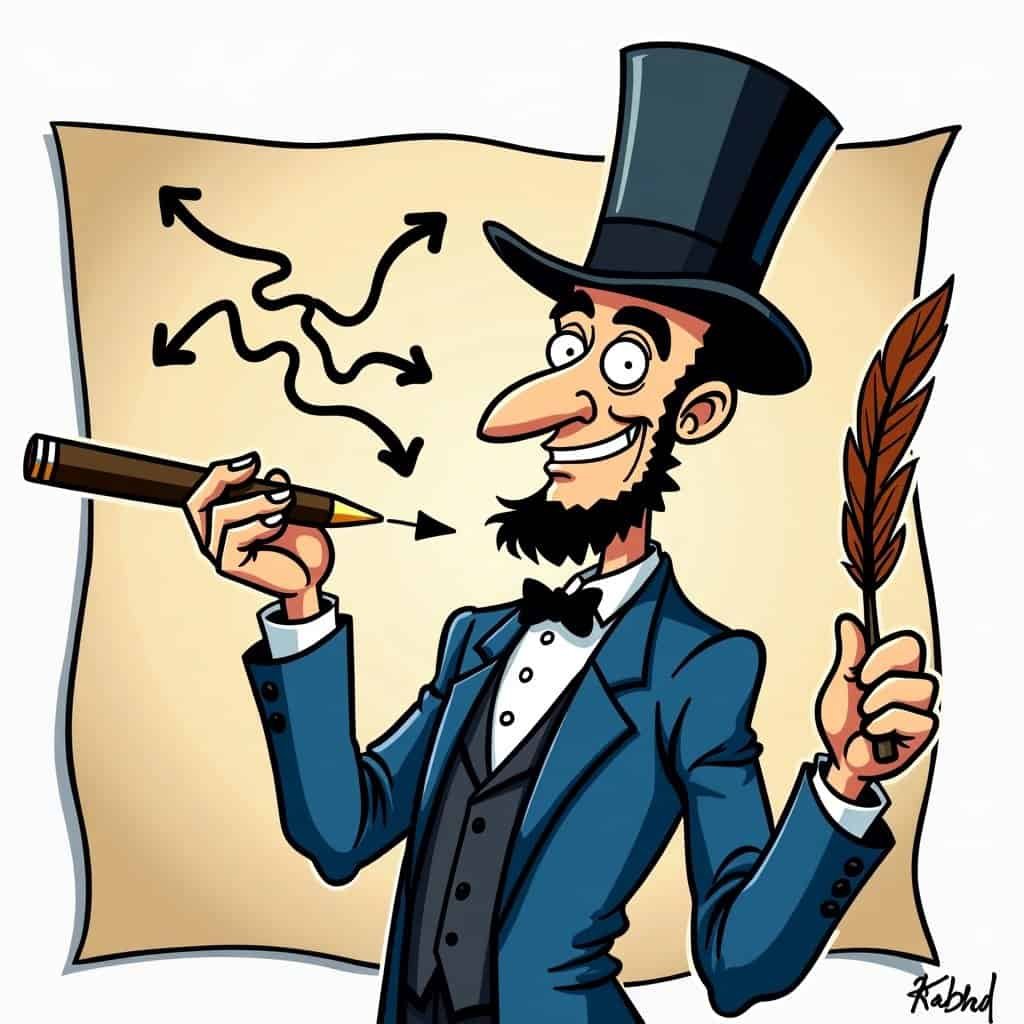Ah, Abraham Lincoln—honest Abe, the great emancipator, and possibly, the federal government whisperer. Now, before you think we’re about to bore you with a history lesson, let’s consider how Lincoln’s ideas about balanced federal power still echo in today’s conservative talks.
Imagine this: It’s the mid-1800s. States are clumping together like a messy pile of magnets, each wanting to go its own way on slavery and governance. Enter Lincoln, walking with purpose and a strong belief in keeping the United States, well, united. His idea was simple but bold for the time—balancing federal power not by overpowering states but by making sure the nation stayed together with some agreement on national issues.
Some might ask, “Isn’t that the feds overstepping?” Not for Abe. He knew that while states’ rights matter, letting each state do whatever it wanted (especially about something as serious as slavery) was like letting kids set their own bedtimes—it just wouldn’t work out!
Lincoln vs. Modern Politics
Now, let’s compare this to today when folks in Washington seem hungry for power, kind of like a blue whale at an all-you-can-eat plankton buffet. Conservatives, channeling Lincoln’s caution, argue for balanced federal power that keeps Uncle Sam in check, stopping it from becoming that nosy neighbor who’s always peeking over the fence. A bit too involved, you might say.
But here’s the kicker—Lincoln wasn’t a ‘my way or the highway’ type. Some say he invented the political balancing act. His Gettysburg address was, among other things, a loud call for a government “of the people, by the people, for the people,” to step in when needed—and I stress, needed.
Lincoln’s Balancing Act
- Unified the nation during a divisive time
- Advocated for federal intervention only when necessary
- Promoted a government “of the people, by the people, for the people”
- Sought balance between federal and state powers
These days, balancing federal and state powers feels like an awkward dance at prom. Conservatives aim for a tune where state power leads and the federal government provides backup. It’s not about going solo; it’s about harmony, folks!
Abraham Lincoln’s legacy is clear here. While he often dealt with big issues, he knew that too much central power could choke on its own ambition or, on the flip side, that too little could tear a nation apart. Smart conservatives can appreciate the back-and-forth between freedom and governance—a balancing act that keeps our republic steady, like your go-to pair of comfy shoes.
Honoring Lincoln’s Vision
So, next time you hear heated debates about federal versus state powers, think about Honest Abe. After all, he’s like the wise old grandpa to today’s conservative thinkers, pushing for a balance where federal power keeps things stable without weighing us down.
Now, put on your top hat and think about this: How can we keep Lincoln’s balanced vision alive? Maybe it’s not about more power or less power, but just the right amount. It’s like making the perfect cup of coffee—too much cream ruins it, but too little, and well, it’s just bitter bean water. So, dear conservatives, here’s to keeping it just right!






